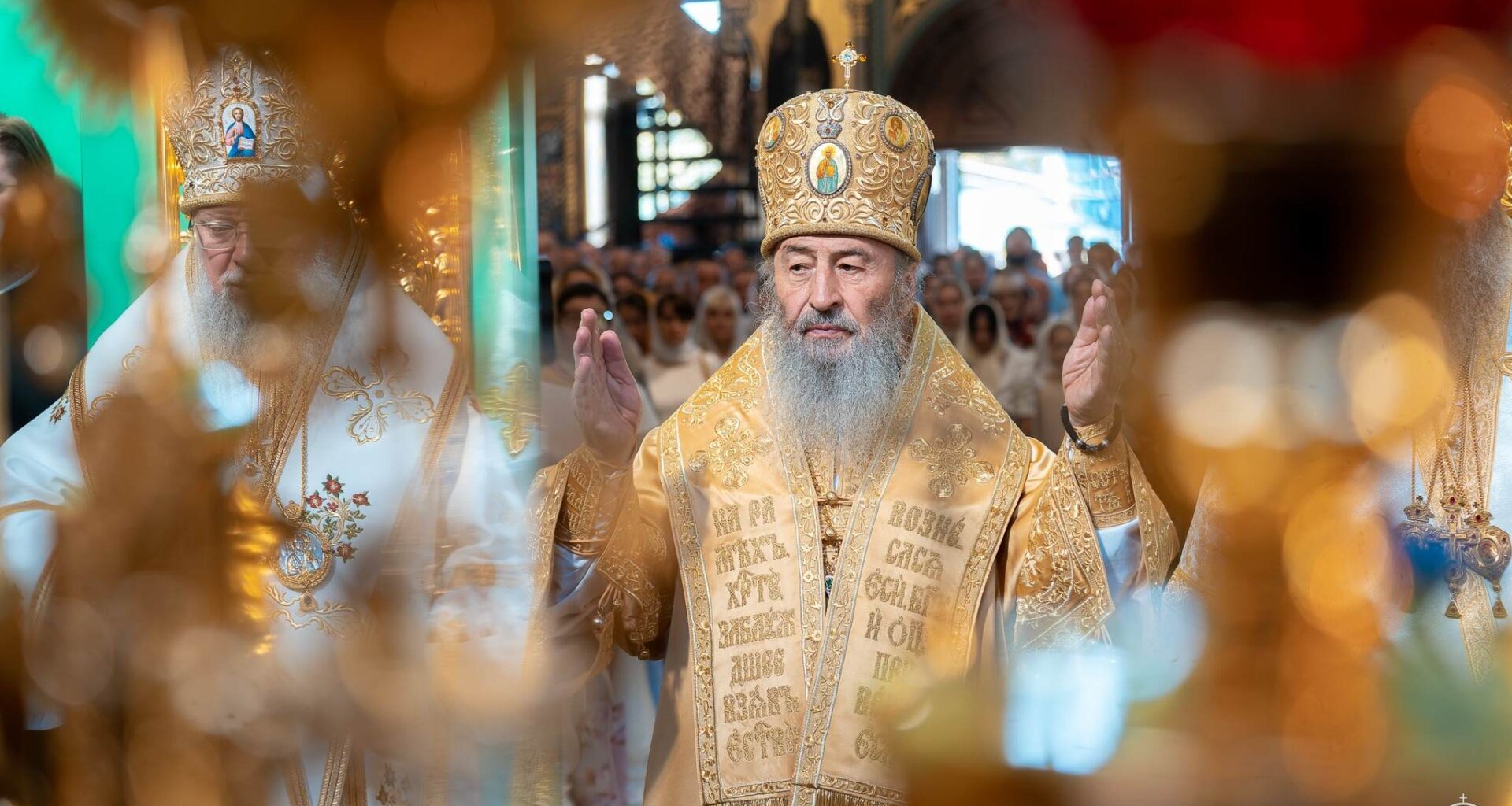Ukraine has made a long-anticipated move against the Ukrainian Orthodox Church of the Moscow Patriarchate, once Ukraine’s largest religious organization.
On 20 August, its parliament adopted a second reading of a bill prohibiting the operation of religious organizations affiliated with Russia. Although the UOC MP was not named, it is clearly the target: the church's affiliation with its metropoly, the Russian Orthodox Church, had become increasingly incomprehensible throughout two years of Russia’s war against Ukraine. And though, officially, ties with Moscow were severed in the early months of Russia’s 2022 invasion, experts see this as rather a declarative half-measure.
The law’s adoption is a culmination of growing pressure on the UOC MP: its role in promoting the ideology of the “Russian world,” the driver of Russia’s invasion, came increasingly under scrutiny. Ukrainian security services launched raids against UOC MP churches and monasteries while select clergy were arrested under accusation of aiding the Russian invasion. The UOC MP was evicted from its prized diamond, the famed Kyiv-Perchersk Lavra monastery, amid a campaign of parishes switching to the competing independent Orthodox Church of Ukraine and accusations of state overreach.
These events have prompted the UOC MP to lead an international campaign accusing the Ukrainian state of religious persecution, an initiative that was particularly fruitful among American Republicans and was promoted, among others, by conservative media personality Tucker Carlson.
However, a deeper glance at the situation reveals a religious organization being rescued by the Ukrainian state from a dead end of its own making. We talked to experts to understand why the UOC MP settled for half-measures, why the Ukrainian state is making this move, whether the adopted law will indeed ban the UOC MP in Ukraine, and if religious reconciliation is on the agenda.
Will the law actually ban the UOC MP?
The law does not mention the UOC MP; instead, it bans the Russian Orthodox Church in Ukraine. The UOC MP will not be able to be part of the ROC structure or affiliated with it in any way.
Specifically, the law bans the activities of foreign religious organizations that are “are located in a state that is recognized as having committed or is committing armed aggression against Ukraine and/or temporarily occupied a part of the territory of Ukraine” and “directly or indirectly (including through public statements of their leaders or other governing bodies) support armed aggression against Ukraine,” particularly - the ROC.
If the UOC MP is found to be connected to the ROC, it will lose its official status as a registered religious organization. This means it will lose some privileges: the ability to open bank accounts, pay official salaries, own and rent property and temples, and access to lower utility prices—Ukraine’s perk for religious organizations.
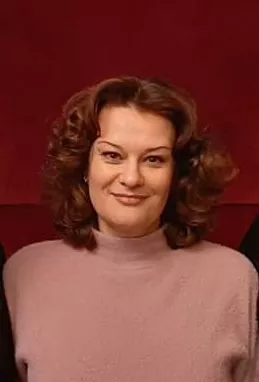
However, as an unregistered religious organization, it can still continue its activities, as Ukraine is a country with religious freedom, unlike, for example, China, where organizations must register with the state to function. The UOC MP could, for instance, transfer ownership of its property to private persons and keep using it, says religious expert Tetiana Derkatch, co-founder of the Center of Religious Security, and author of the book “Moscow Patriarchate in Ukraine: Anatomy of Treason.”
The law gives the UOC MP nine months to finally sever the church-canonical relations with the Russian Orthodox Church. A procedure to establish its affiliation is foreseen, and after the nine months are over, DESS can take the UOC MP structures to court, according to Andriy Smyrnov, historian and religious scholar at the Ostroh Academy.
The State Agency for Ethnopolitics and Freedom of Religion (DESS) will convene a commission to analyze the statutes of roughly 8,000 UOC MP parishes and issue a list of religious organizations affiliated with the Russian Orthodox Church. They will all have time to sever their relations, meaning to change their statutes. DESS will review each parish separately because the UOC MP does not have the status of a single legal entity: rather, for the law, it is a network of affiliated religious organizations.
“But it has an administrative center, the Kyiv Metropoly, and the DESS may sue it if it doesn’t sever its relations with the Russian Orthodox Church,” Smyrnov says.
Another major change that the law brings is that for the first time in Ukraine’s legal space, it defines the “Russian world” ideology, considered to be the ideological driver of Russia’s war against Ukraine, and prohibits its popularization by religious organizations:
What was the problem with the UOC MP?
The UOC MP has been viewed as Russia’s soft power tool for decades, promoting a soft version of the Russian world ideology. In a nutshell, this ideology envisions the “Holy Rus,” a callback to the medieval state of the Kyivan Rus, the predecessor of modern-day Ukrane, Russia, and Belarus, fighting against the “demonic west.”

“Many researchers have shown that the ‘Russian world’ ideology is a criminal ideology. The UOC MP was a channel to spread Russian narratives about the ‘Holy Rus,’ that Ukraine should not exist as an independent state but rather as Russia’s ‘Malorossiya’ province, about Russia’s special role in the world, about the West’s negative influence on the church and the state. This is why its propaganda will be banned,” Smyrnov says.
He views the ban on “Russian world” ideology as “historical,” alongside Ukraine’s recently adopted decommunization and decolonization laws, which aim to break the grip of Russia’s colonial legacy in Ukraine.
Ukraine’s Security Service insisted on this part of the law, as currently Ukraine prohibits justifying Russian aggression but not “Russian world” propaganda, which led to these narratives being freely shared in social media, Smyrnov says. Now prosecuting these actions will be easier.
Is the UOC MP actually still connected to Russia?
In the early days of Russia’s full-scale invasion in May 2022, the UOC MP condemned Russian aggression and declared it is severing ties with the ROC, of which it is a self-governed part. However, an expert committee found that it is still linked to its metropoly.
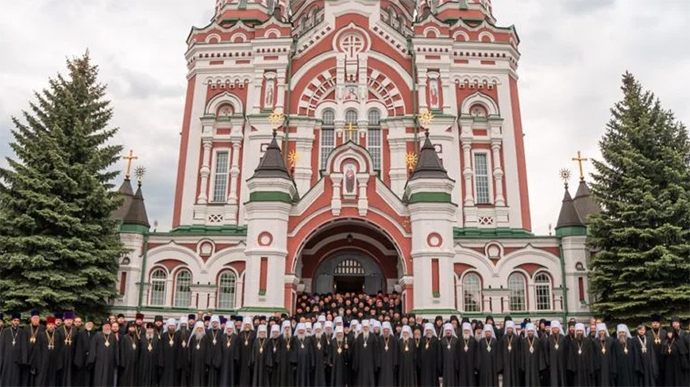
The key is in its central statute, that of the Kyiv Metropoly.
“It mentions a letter from Moscow Patriarch Aleksey II, which indicates that the UOC MP remains an integral part of the ROC. Metropolitan Onufriy is a permanent member of the Russian Orthodox Synod. All the bishops of the UOC MP are members of the Bishops' Council of the ROC,” Andriy Smyrnov says.
The UOC MP finds itself in a hybrid situation.
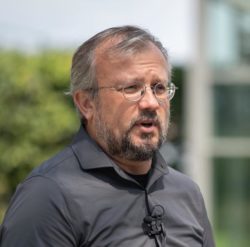
“It doesn’t fit any established status within global Orthodoxy. It’s not autocephalous, it’s not autonomous, it’s not completely dependent on Moscow. The church itself can’t explain what it is. If you ask Metropolitan Onufriy what the status of this church is, he’d be unable to give a meaningful explanation,” theologian Cyril Hovorun believes.
At the same time, this church is not monolithic.
“There is a whole cohort of [Ukrainian] patriots in the UOC MP, who truly believe they are not part of the Moscow Patriarchate. There are those who think they are part of the Moscow Patriarchate, but are a Ukrainian church, those who don’t care, and also those who think they are a Russian church,” Tetiana Derkatch explains.
However, the pro-Russian lobby is strong. Most of the bishops are pro-Russian, and so is the Orthodox oligarch Vadym Novynskyi, whose influence on the UOC MP is immense, believes Andriy Smyrnov. These bishops still maintain phone relations with the Moscow Patriarchy
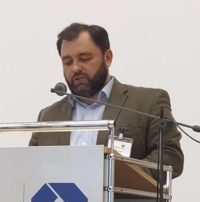
Nevertheless, there is a growing demand for clarity and change inside the UOC MP. One of the voices insisting that their church’s lingering ties to Moscow constitute “criminal inaction” is Serhiy Bortnyk, professor at the UOC MP Kyiv Spiritual Academy. He believes that the law's intention to “make the distinction between UOC MP and the ROC clearer” is a positive action, as it can prompt the UOC MP leadership to act:
“The 2022 council was about administrative independence, that the UOC MP would not implement decisions of ROC councils or other requests from Moscow. But the canonical connection was preserved, and the UOC MP cannot solve this problem by itself. If the UOC MP wants to remain in Ukraine after 2.5 years of war, it needs to make steps in this canonical direction.”
Theologian Cyril Hovorun agrees: he believes that the active members of the UOC MP who want their church to really cut ties with the Russian Orthodox Church can use the law as leverage to force their leadership to act.
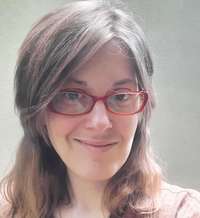
Hi! My name is Alya Shandra, I'm the author of this piece. I believe in the power of data and analysis, and that's why we try to give you the best of it at Euromaidan Press.
Become our patron to help us bring you the best insights from Ukrainian and foreign analysts so we can cut through the noise together.
Why didn’t the UOC MP cut ties with Russia?
The UOC MP’s situation now is rather unique. In Orthodoxy, churches cannot simply declare their independence: it has to be granted by their metropoly, and they must be recognized by the rest of the Orthodox Churches. If that is not done, the independent church is considered schismatic.
It is highly unlikely that the ROC will ever grant independence, or autocephaly in church speak, to the UOC MP—a Gordian knot that its nemesis, the Ukrainian Orthodox Church of the Kyiv Patriarchate, chopped in 1992 by unilaterally declaring its independence and remaining schismatic until its situation was legalized by Ecumenical Patriarch Bartholomew in 2019.
This patriarch, the “first among equals” in the Orthodox World, interceded by declaring Ukraine Constantinople’s, not Russia’s canonical territory – a claim that is indeed supported by history – and created the Orthodox Church of Ukraine, which primarily comprised the Kyiv Patriarchate.
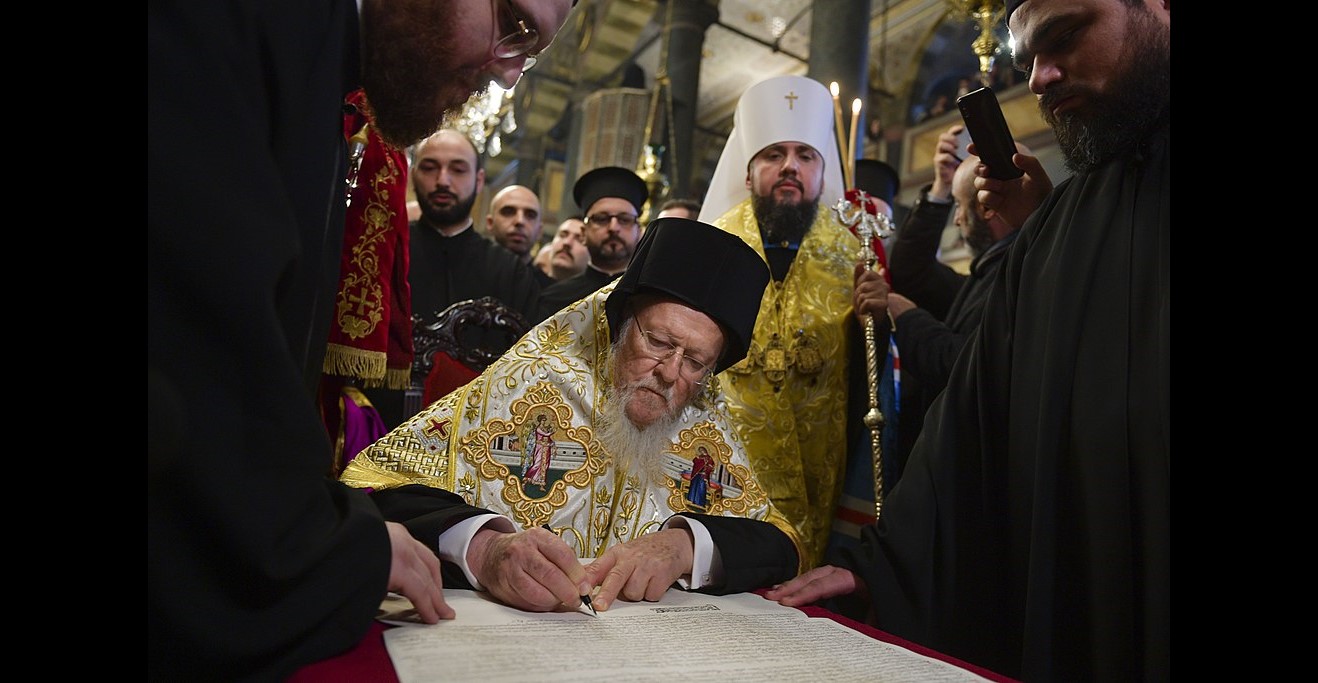
Although the action was intended to be consolidating for Ukraine’s Orthodoxy, the UOC MP snubbed the unifying council, broke relations with the Ecumenical Patriarch to be faithful to Moscow, and continues viewing the OCU as schismatics. Afterward, the deep conflict within Ukraine’s dominant religious tradition, Orthodoxy, was preserved and has lately escalated to bitter standoffs over church property.
Joining the OCU and making peace with the Ecumenical Patriarch means admitting its mistakes.
“We cut relations with the Ecumenical Patriarchate to be loyal to Moscow, and now the war came, and this loyalty came back to bite. In the first years of the war, there were still hopes that Patriarch Kirill would condemn the war, say something when churches were destroyed and priests were killed. But he has said nothing in 2.5 years; he supports the war, so what else is there to hope for?” Serhiy Bortnyk of the UOC MP asks, adding that his church needs to make steps in the canonical direction to settle its uncertain relations with Moscow.
However, this runs against the interests of the UOC MP leadership.
Trending Now
“UOC MP primate, Metropolitan Onufriy, is awaiting the end of the war; he hopes to restore the status quo, meaning to return to the Moscow Patriarchate. He doesn’t want to repeat the path of [Kyiv Patriarchate primate] Filaret Denysenko, who in 1992 also left the Moscow Patriarchate and was punished,” Andriy Smyrnov believes.
“They would rather have the image of a church persecuted for their faith than sever relations with the Moscow Patriarchate,” Tetiana Derkatch says.
As well, the pro-Russian bishops hold sway. Many are ethnic Russians who studied in Russian seminaries. Many continue praying for Russian patriarch Kirill, a practice that the UOC MP sought to stop in 2022, and publicly call to preserve the connection with the ROC, claiming that there is no salvation outside of it.
“They believe that having a relationship with the Moscow Patriarchate is like having relations with Christ himself,” Cyril Hovorun says – according to him, a “grave theological mistake.”
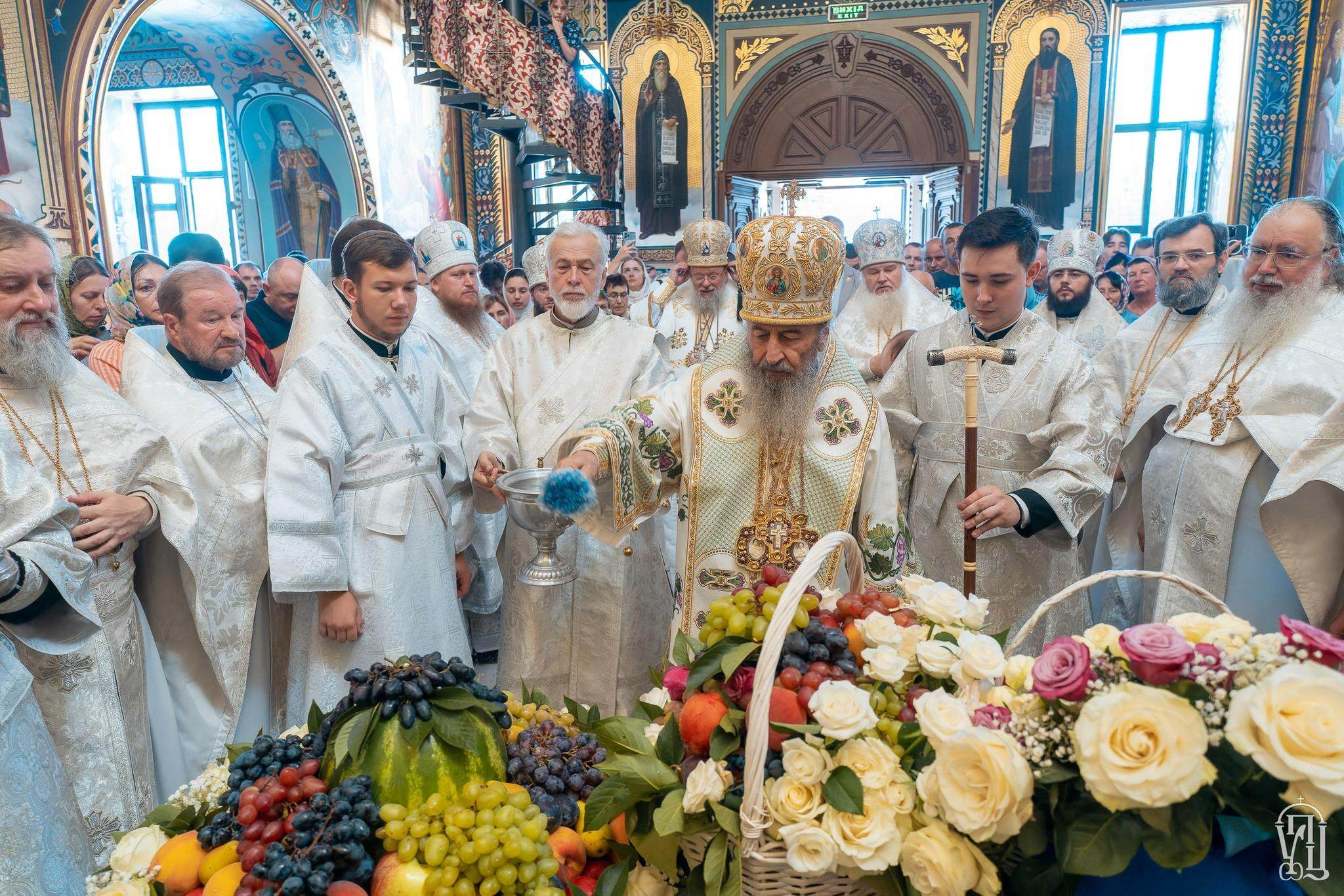
The personality of Metropolitan Onufriy also matters. The 75-year-old primate, who came to age in Moscow’s Holy Trinity-St.Sergius Lavra, feels it is his son’s duty to remain faithful to the Russian Orthodox Church, Tetiana Derkatch believes.
Onufriy, disconnected from Ukrainian everyday life, is unable to speak to secular audiences, which has resulted in infamous gaffes such as his suggestion that Stalin’s genocidal famine of 1933-1934, which took the lives of four million Ukrainians, was God’s providence to set sinful Ukrainians on the path of truth, Bortnyk explains.
His ultra-religious logic resembles the anti-modernist policies of the Catholic Church of the early 20th century, leading to the UOC MP’s growing estrangement from reality; “it is inadequate to the problems Ukraine faces today,” Bortnyk says.
Why is the UOC MP not uniting with the OCU?
The most logical solution for the UOC MP’s impasse seems to merely unite with the OCU, as originally envisioned. This was the scenario initially pursued by the Ukrainian authorities, who easened the process of parishes swapping their jurisdictions.
However, despite high hopes, following Patriarch Bartholomew’s granting of the Tomos in 2019, some 1,700 parishes migrated, while some 8,000 are estimated to remain. Nevertheless, this number is significant and exceeds some minor autocephalous churches, Andriy Smyrnov observes.
Most priests and bishops remain with the UOC MP. The latter doubt that the independent OCU is canonical, believe that its primate Metropolitan Epifaniy is a layman, and insist that another council to establish an autocephalous Orthodox Church in Ukraine should be held instead of the 2019 one that created the OCU.
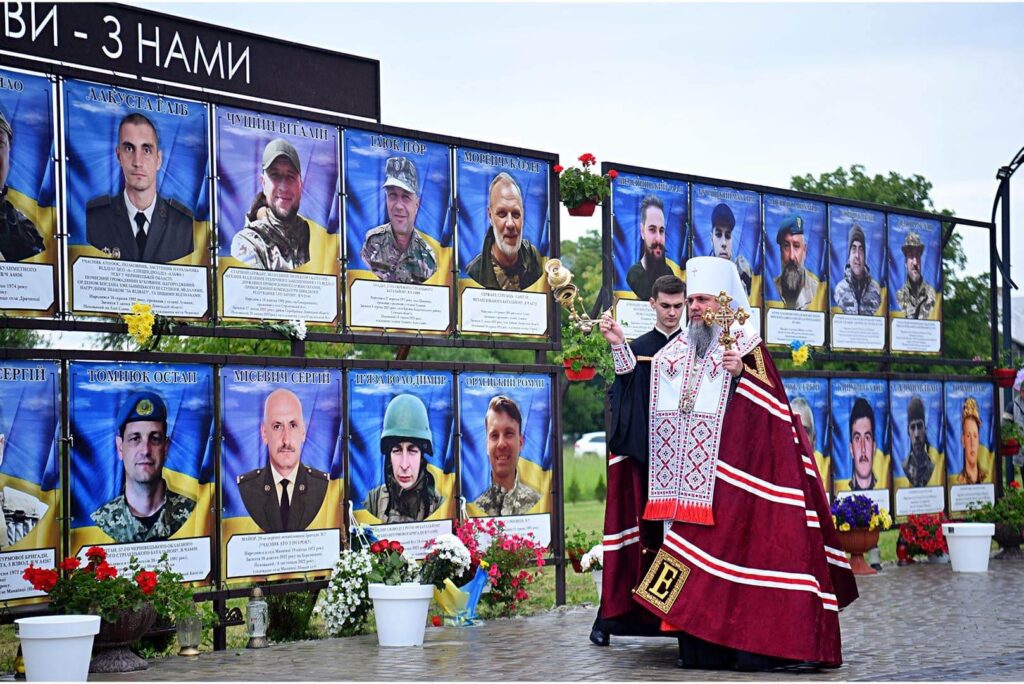
While calling to dialogue with the UOC MP, the OCU rejects these conditions: from its viewpoint, the Ukrainian Orthodox Church already received all that it needs for autocephaly at the council that the UOC MP ignored. This complicates attempts at dialogue.
However, grassroots efforts are proliferating, such as the Kyiv-Sophia Fraternity, the multijurisdictional members of which call to launch a dialogue with no preliminary conditions.
As well, years of animosity have left a deep mark. “For 30 years, the UOC MP’s identity was ‘we are not the schismatics,’ while the churches that comprised the greater part of the OCU were all about ‘away from Moscow,” Tetiana Derkatch explains. All the efforts that the UOC MP exerted in preaching that its competitors were heretics have now taken it hostage: rapprochement is culturally unacceptable.
However, the UOC MP itself is often demonized. Bortnyk believes that claims that it is merely a “Russian church” and should be eliminated, often promulgated by OCU members, contribute to the estrangement of the two churches. So do tensions surrounding parish transfers from the UOC MP to the OCU, many of which the UOC MP claims are illegal and conducted through force under the aegis of the local authorities.
In the words of Cyril Hovorun, the absence of rapprochement between the OCU and UOC MP is more simply explained by the selfishness and egoism of both jurisdictions, who defend their corporate interests and fear they will need to share authority and property.
Tetiana Derkatch agrees: “The leadership of the OCU has a certain vision of the interests of the OCU and how they should be protected. And at the moment, they are not ready to sacrifice these interests by reformatting and including another structure in this sphere of interests, which is, in principle, larger than theirs.”

Why did Ukraine adopt the law?
In adopting the law, Ukraine’s government aims to help the UOC MP escape an impasse of its own making.
“Its goal is not to prohibit any church but to help the UOC MP sever ties with the Russian Orthodox Church. Naturally, this process will be lengthy, but the law may speed up certain processes, and perhaps some compromises on church unity will be found,” Andriy Smyrnov believes.
With its recent actions, the Ukrainian state is starting to take the position of a mediator regarding the conflicting Ukrainian orthodox churches, despite the OCU’s attempts to secure a preferential position for itself, Cyril Hovorun says: “I see the state emerging as a new Leviathan in the Hobbesian sense, as a moderating power above the conflicting religious organizations, groups, and churches. It’s trying not just to punish the UOC MP, but to propose viable solutions that would preserve most sensitivities of this church.”
Aside from moderation, it pursues state security: Russia will inevitably influence the political and religious situation in Ukraine if the Moscow Patriarchate remains, and this is why not only Ukraine but the Baltic states search for solutions to evict the Russian church, Smyrnov remarks.
But the real problem is changing people’s mentality, he adds. “The law can’t ban pro-Russian sentiments in society, including inside the church. That’s why we need to work with citizens, step up the education, counterpropaganda, information security.”
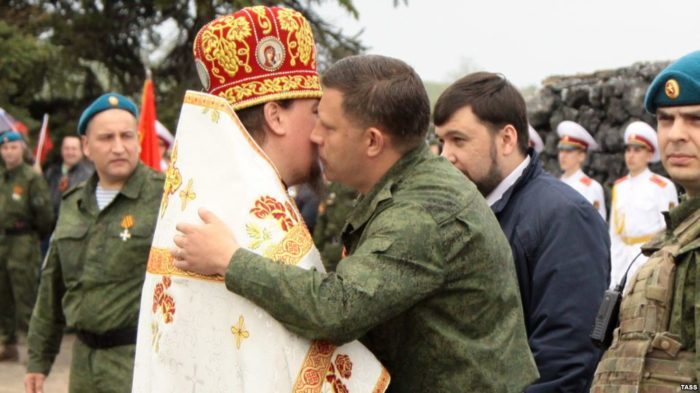
Whether the UOC MP will take ownership of their role in aiding Russian aggression is an open question. Currently, it claims solely that it is a victim of persecution, Tetiana Derkatch says.
“Will it accept this situation with humility and see it as a consequence of their own actions that it has nurtured for decades? People do not want to carry responsibility for everything they have sown,” Derkatch adds, noting that unlike the UOC MP, the Catholic Church has faced its own past transgressions in investigating cases of pedophilia. “The responsible act would be to admit that they made a catastrophic, tragic, wrong choice that the whole country is now suffering from.”
What will happen next?
Ultimately, it will depend on how the law is implemented, and the actions of the UOC MP itself to actively search for a solution out of its impasse.
“The state cannot fully ban a church, and the UOC MP cannot independently proclaim autocephaly. This is why it should enter negotiations with the OCU, the Ukrainian state, and the Ecumenical Patriarchate. There is no alternative to dialogue. If such a commission is formed and dialogue is launched, a solution will be found. If there will be no dialogue, the confrontation will grow, and the UOC MP will be marginalized: some will go underground, a part will join the OCU, and the rest will simply wait for the end of the war,” Andriy Smyrnov says.
Many negotiations will be held in the nine months before the law is enforced, and we can expect that the Ecumenical Patriarchate will play a role. Already now, it has sent a commission to investigate matters.
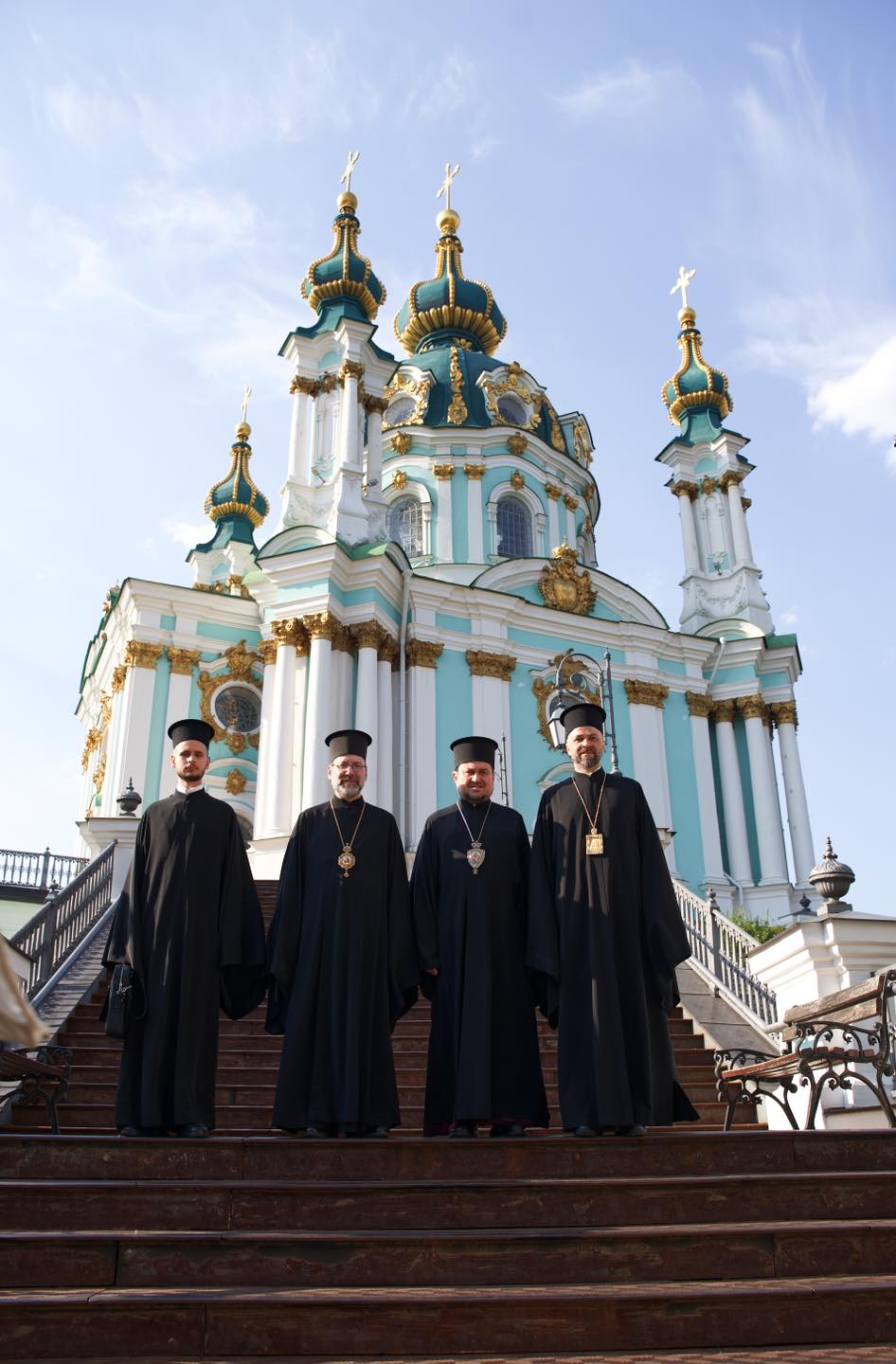
“Its task is simple and complicated at the same time. They must understand if and how it is possible to achieve a civilized co-existence of the OCU and UOC MP in Ukraine, considering that one of them is considered a threat to national security,” Tetiana Derkatch explains. Most likely, the commission will search for ways for the UOC MP to restore relations with the Ecumenical Patriarchate.
There are several possible solutions for the UOC MP. According to Serhiy Bortnyk, there is no point in forcing it to unite with the OCU: the differences at present are too large. So a possible solution would be to create a temporary canonical structure under the aegis of the Ecumenical Patriarchate for UOC MP bishops that want to leave the Russian Orthodox Church but do not want to join the OCU. This would allow the UOC MP and the OCU to peacefully coexist and gradually get closer. This is a solution that many UOC MP bishops would accept, Botnyk says.
A lot depends on the actions of OCU MP primate Metropolitan Onufriy. “He needs to at least accept reality as it is. Right now, it appears he lives in an alternative reality, where the church exists in a vacuum, and God will handle it,” Tetiana Derkatch observes.
So far, the OCU MP’s first steps to get itself out of the grey zone it is in are encouraging, Cyril Hovorun says: it is reaching out to the Ecumenical Patriarchate. Dialogue and rapprochement with it and the OCU are the unvoidable first steps. “Then, through this dialogue, they could discuss how to coexist with one another. The forms of coexistence can be different, but to discuss them, they first need to start talking to each other,” Hovorun notes.
Related:
- “Not about banning.” Theologian unpacks Ukraine’s new anti-Russian church law
- Orthodox Church of Ukraine activists implore leaders to condemn violence during parish transfers
- Theologian: Russian Church goes full Nazi with “holy war” on Ukraine
- Anatomy of treason: how the Ukrainian Orthodox Church sold its soul to the “Russian world”
- Russian World: the heresy driving Putin’s war
- Obey to pray: Russia’s ruthless crackdown on faith in occupied Ukraine

